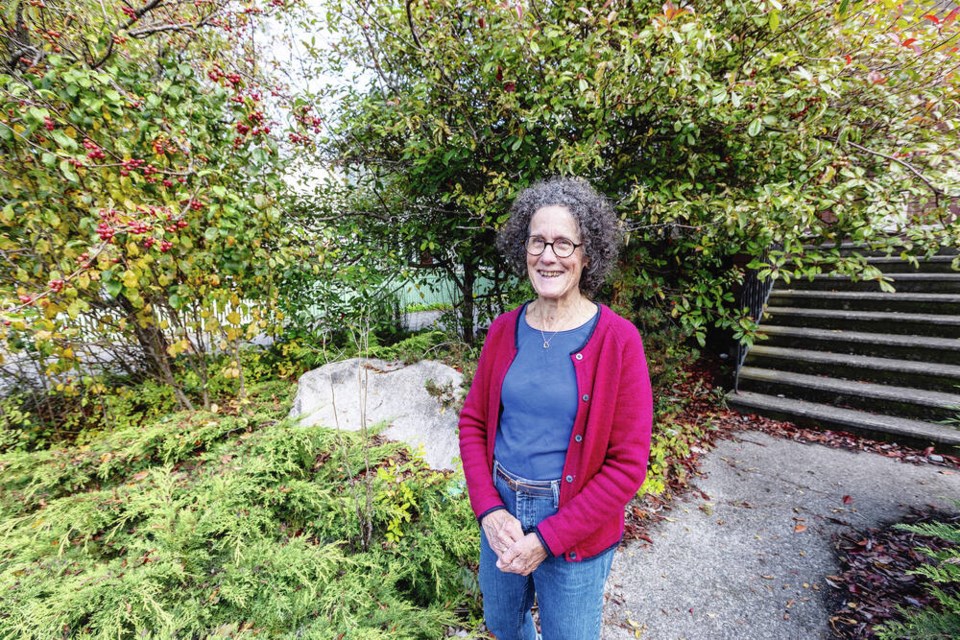Saying it’s better for kids to be outdoors and connecting with nature, a group of early childhood educators and researchers is once again pushing the province to license outdoor child care as an alternative to facility-oriented care.
The push, which has been ongoing over the past four years, picked up steam during the pandemic and as parents, educators and some cities bemoaned the lack of child-care spaces and child-care options.
The campaign recently asked the City of Victoria to pressure the province to act.
Enid Elliot, instructor in the Early Learning and Care Faculty at Camosun College and part of the Nature Based Child Care Advisory Committee, said it’s about time the province at least started having the conversation.
“How could you be against it? The more we find out about getting children outside, it’s just so good for them and their development,” she said. “It operates in other places and has been successful.”
Elliot said she would like to see the province at least run pilot programs to see what the interest levels are like, what ideas will work and what could be implemented around B.C.
There are child-care programs that already operate outdoors in Victoria, though the ones that operate outdoors full-time are unlicensed.
Lindsay Coulter, program coordinator with Victoria Nature School, said they run both licensed and unlicensed programs.
The licensed programs are a combination program that splits the day between learning and playing at PKOLS and time at Gordon Head Recreation Centre, where they rent indoor space as well as using the outdoor space there.
“It’s not the program that gets licensed, it’s the space,” she said.
The unlicensed programs are run outdoors all day.
Coulter said the programs are very popular, noting the school typically doesn’t have to advertise to fill space.
Coulter said licensing would be a game changer as it would mean parents could get subsidies, low-income families could apply benefits to it, and educators could apply for the wage enhancement grant, making it a more attractive teaching option.
There’s also the barrier of kids who require a support worker. If the child-care program is unlicensed, parents are unable to get funding to help defray that cost.
Coulter said the subsidies can transform a $750 child-care bill for a three-day-a-week program to a more manageable $320.
“It means [outdoor child care] right now is just for parents who can afford it,” said Elliot. “I think it’s an equity issue.”
Coulter said if programs were licensed they would have more flexibility in not having to have an indoor component.
“And we could definitely get more kids access to nature and more kids just access to child-care spots,” she said. “Outdoor child care definitely fills a need in getting kids outside more, less screen time and more time in nature. Not everyone has access to that; some kids don’t have access to yards and risky play is really important — learning how the world works, how their body works, they build self-confidence and makes them more resilient.”
Coulter said on top of all the other benefits for kids, outdoor education and care also includes place-based programs, which let kids get to know the land through local traditional knowledge keepers.
Those advocating for licensing outdoor child care in B.C. say it could mirror what has already happened in Washington state and Oregon.
Washington was the first U.S. state to permanently license outdoor, nature-based child care for preschool and school-age children in 2021, which meant the programs were able to receive subsidy payments and education assistance programs. Oregon followed suit this year.
The Ministry of Health, which oversees child-care licensing, said it is aware there has been increasing interest in licensing fully outdoor child-care programs but did not comment on whether it would consider following Washington state’s lead.
The ministry noted there is nothing to prevent child-care providers from operating primarily out of doors, but pointed out they can only obtain a licence provided their program is attached to a building or structure that meets requirements outlined in the Child Care Licensing Regulation.
Elliot said including a licensing category for child-care programs operating full-time outdoors without a building would not solve the child-care shortage, as it would require more educators, but it would at least offer parents an alternative.
“And it would become more mainstream, then they become an option for somebody who says, my child would really do better in that kind of program,” she said.
“I have seen how it’s so great for some kids who just don’t fit as easily into the classroom or an indoor space — their movement and their being is just a little too loud and big.”
In Victoria, the wait time for child care can be as long as two years.
>>> To comment on this article, write a letter to the editor: [email protected]



